
ACDEG explained
Learn about the most prominent instrument defining this continental governance agenda: the African Charter of Democracy, Elections and Governance (ACDEG) through a list of infographics identifying main themes, timelines, and topics of the ACDEG. Each explainer includes an infographic and a caption.
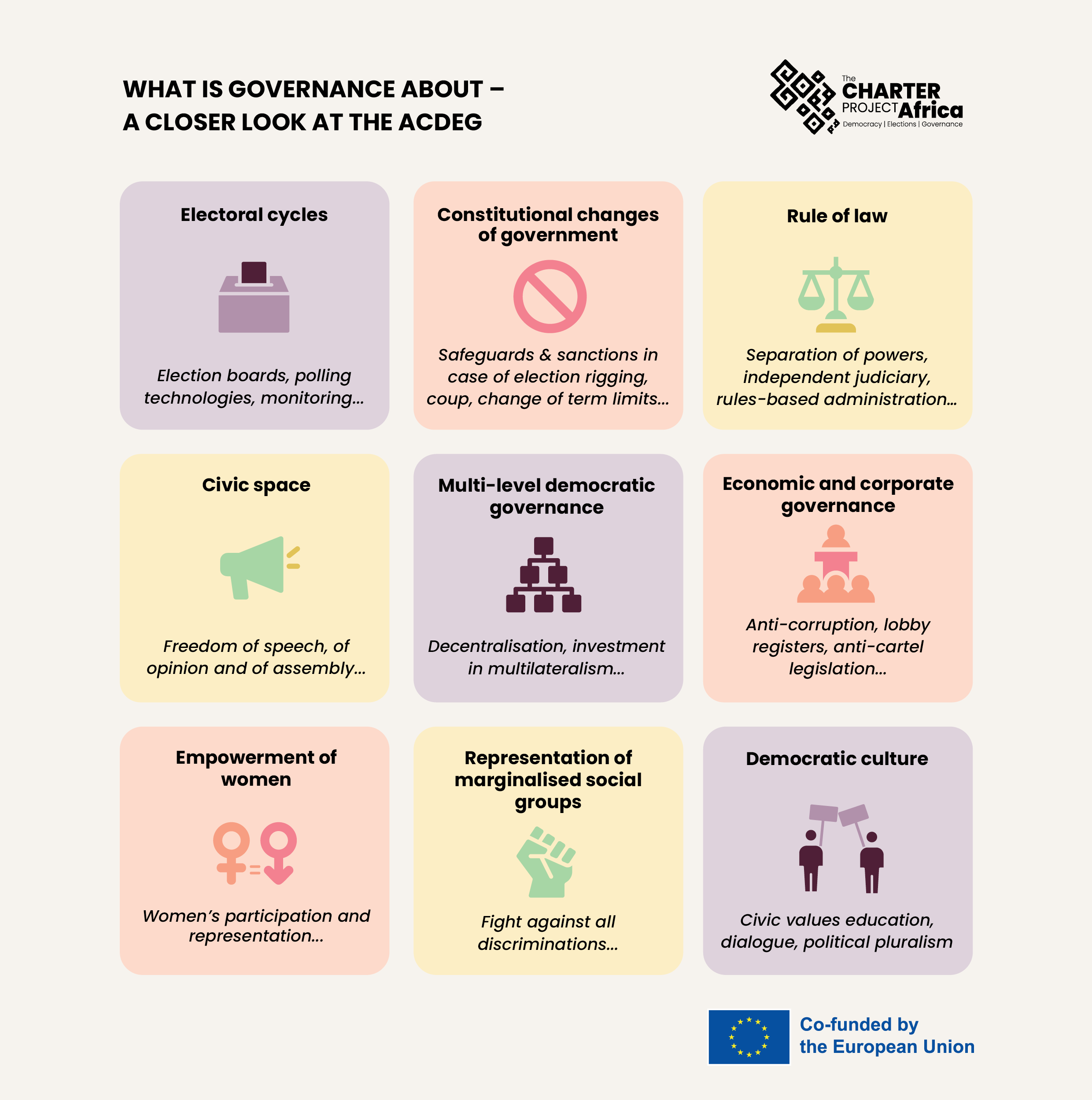
African countries are bound by AU principles, values and rules - such as how elections are conducted. The continental body has the mandate to conduct election observation as well as impose sanctions for unconstitutional changes of government. The ACDEG defines this agenda and sets the broad objectives heads of state have agreed to pursue. Breaches can attract sanctions including suspension and, in rare cases, military intervention.
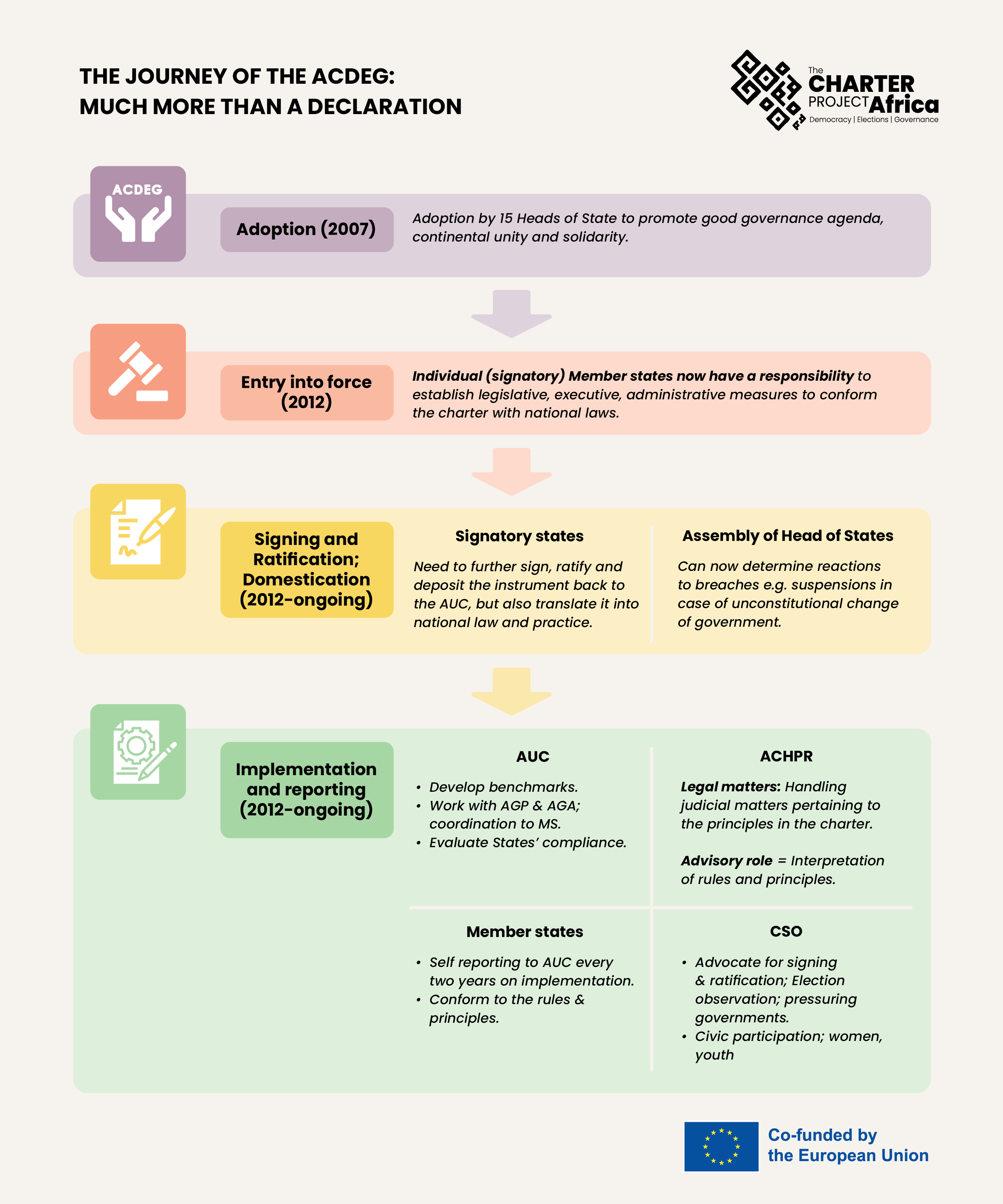
The ACDEG includes tenets of liberal democracy. It is part of a larger AU history, particularly a phase of relative optimism with africanisation of international norms and fear of democratic backsliding.
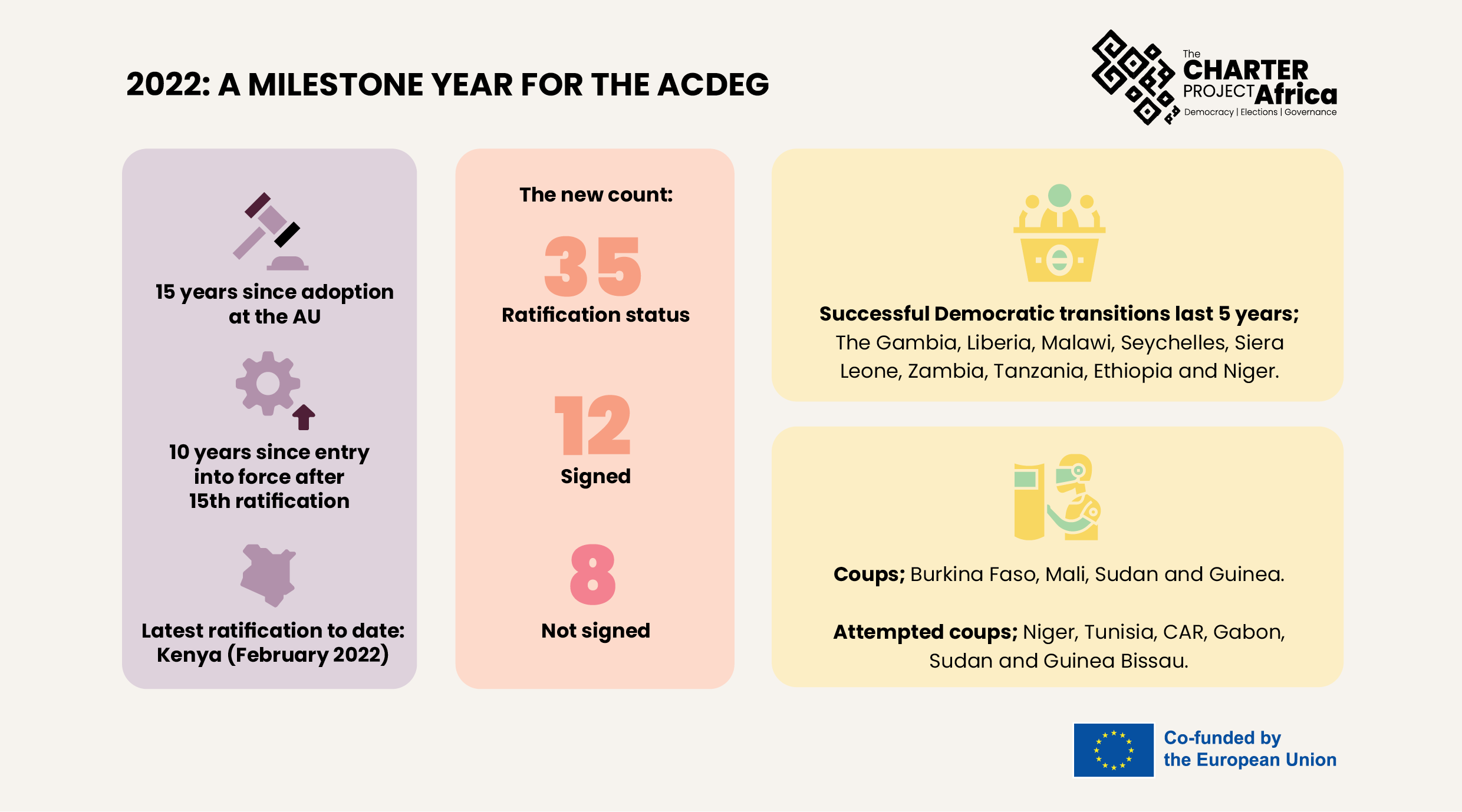
In 2022, we saw progress in the adoption and enforcement of the ACDEG. In February 2022, Kenya adopted the ACDEG, and there have been eight successful democratic transitions in the last five years. There have also been setbacks as well. Eight countries are yet to ratify the ACDEG and there have been coups in Burkina Faso, Sierra Leone, Mali, and Gambia.
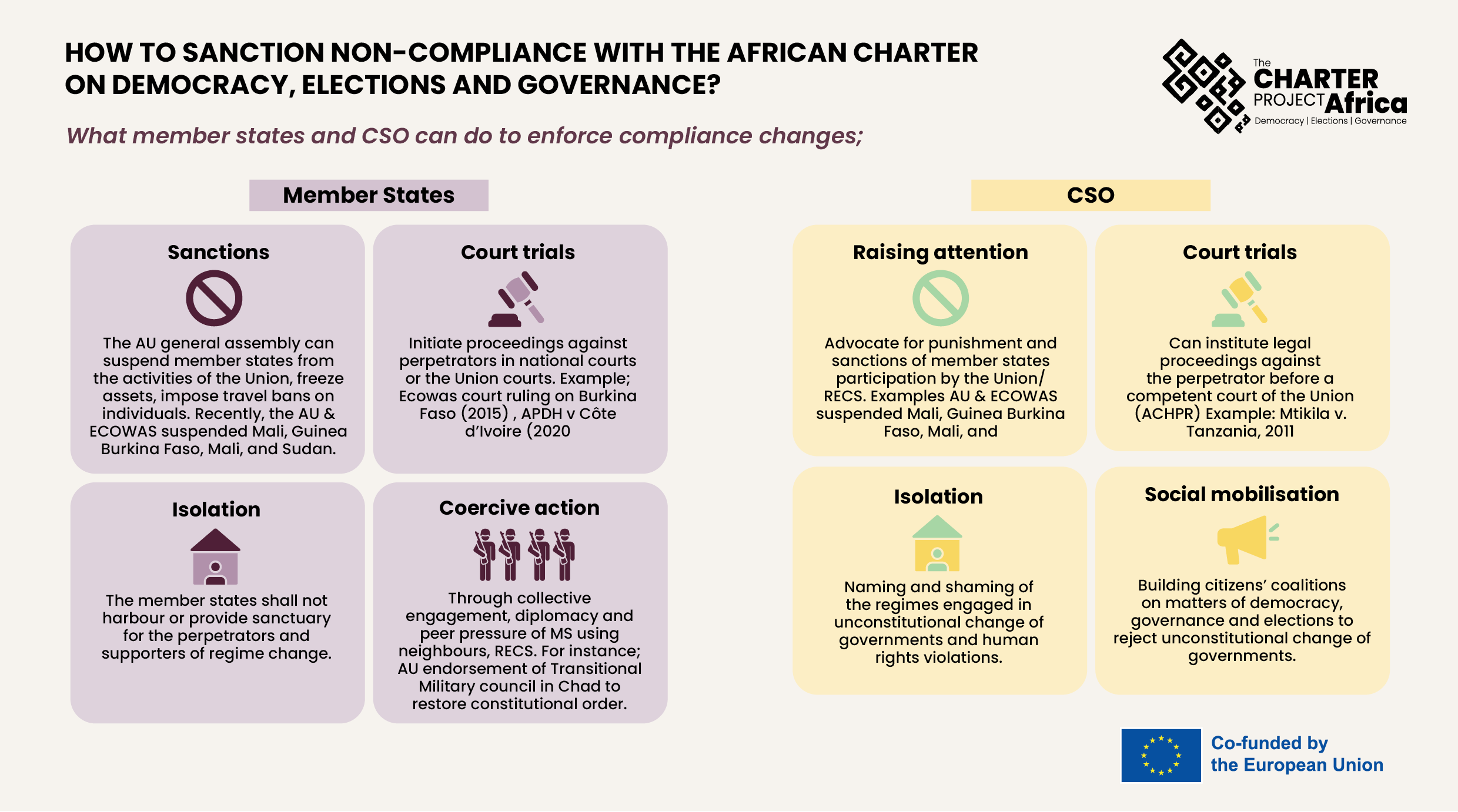
African Union member states and CSOs can enforce compliance changes.
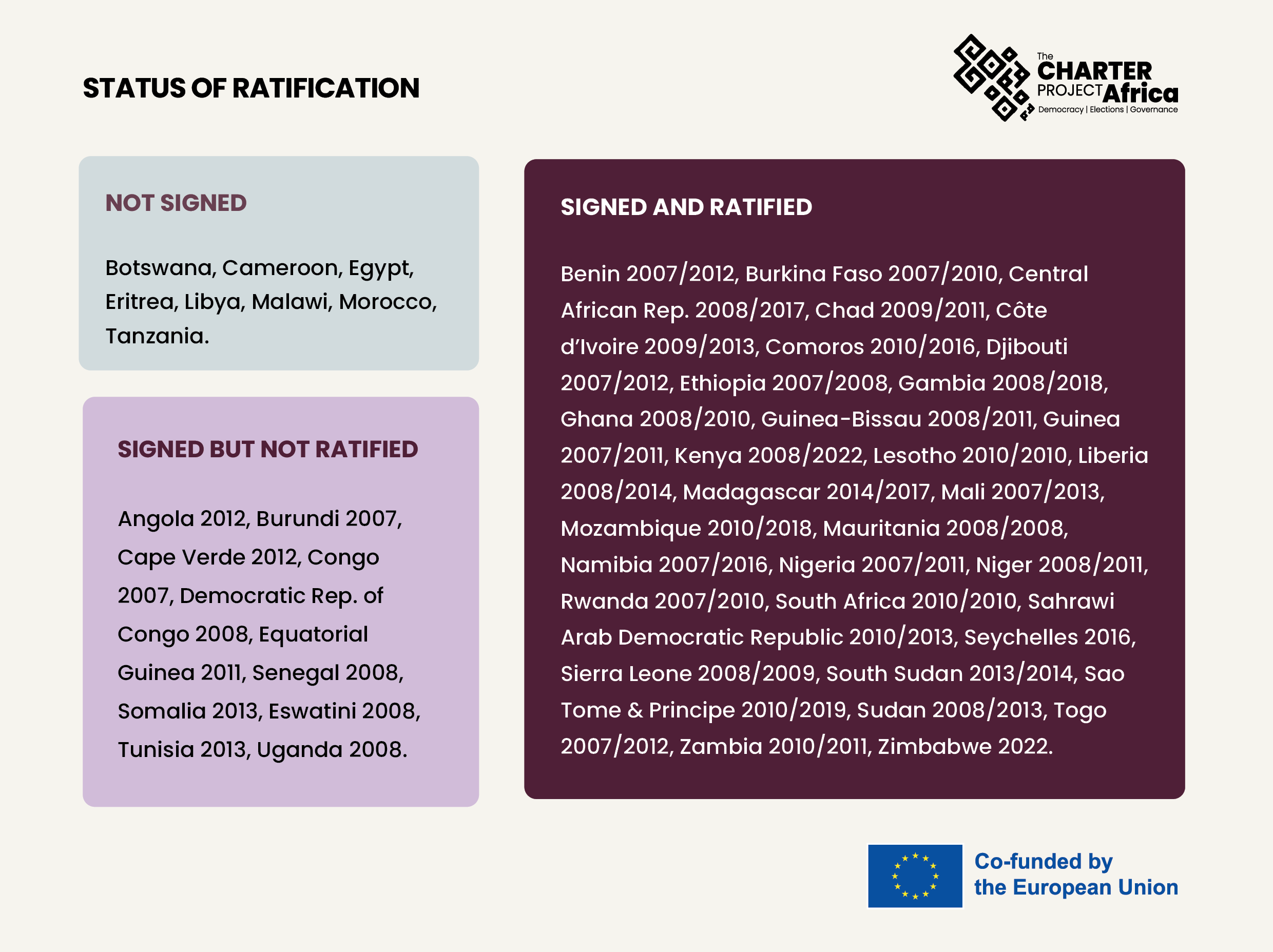
Worldwide, phases of democratisation and autocratisation alternate and reflect different country's priorities. A study found no direct link between governance performance and adoption status. This is confirmed by Cameroon, Chad, Rwanda and Guinea-Bissau who were among the early adopters. Meanwhile, the first two countries to ratify, Ethiopia and Mauritania, weren't democratic at the time of signing. Yet a democratic country like Botswana has not yet signed the ACDEG.
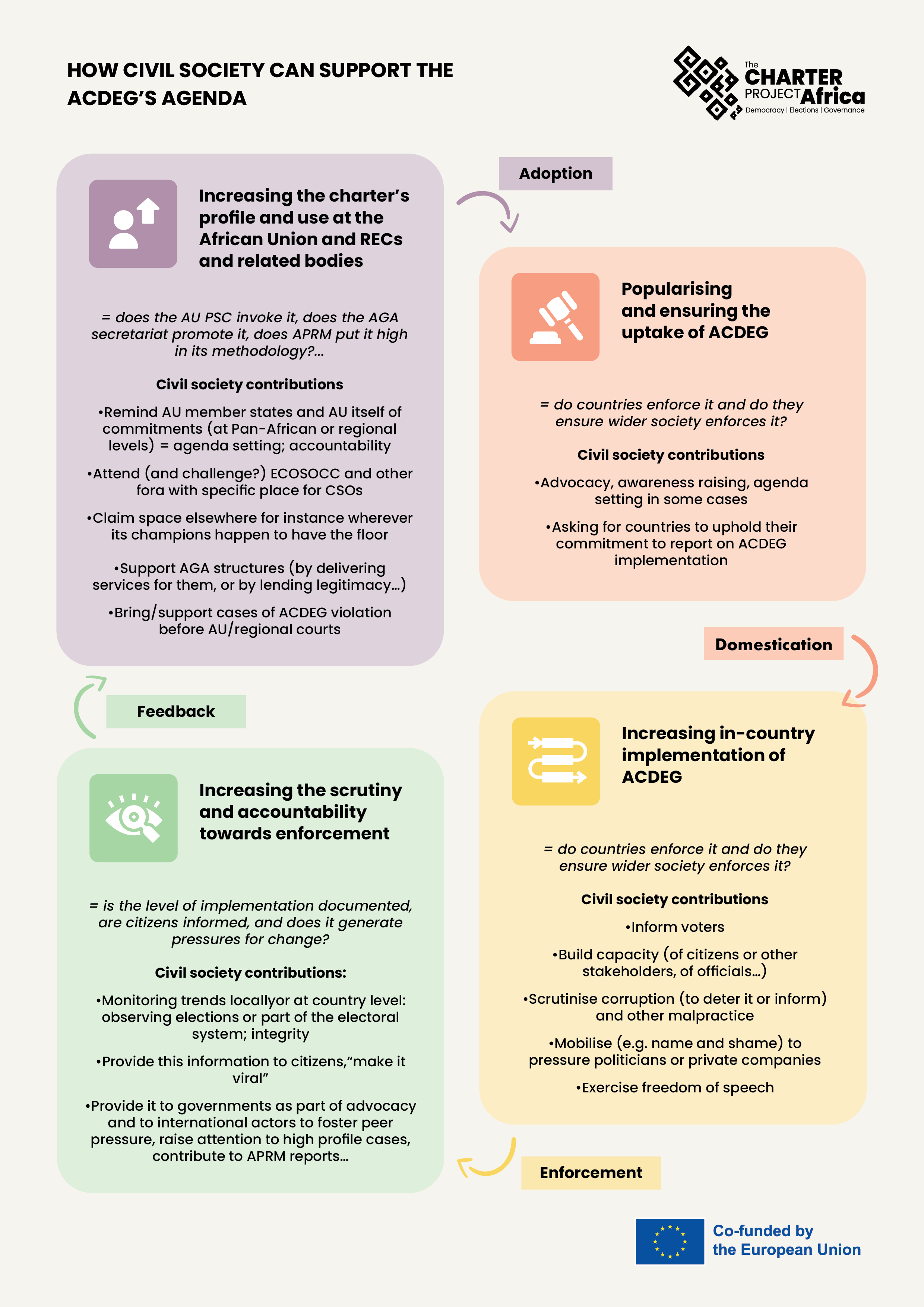
There are some concerns about the performance of African countries when it comes to governance. So, the ability of the ACDEG to influence outcomes is itself a subject to controversy. Therefore, what can be done to ensure that the stipulations of the Charter are better enforced, and how can one contribute to this?
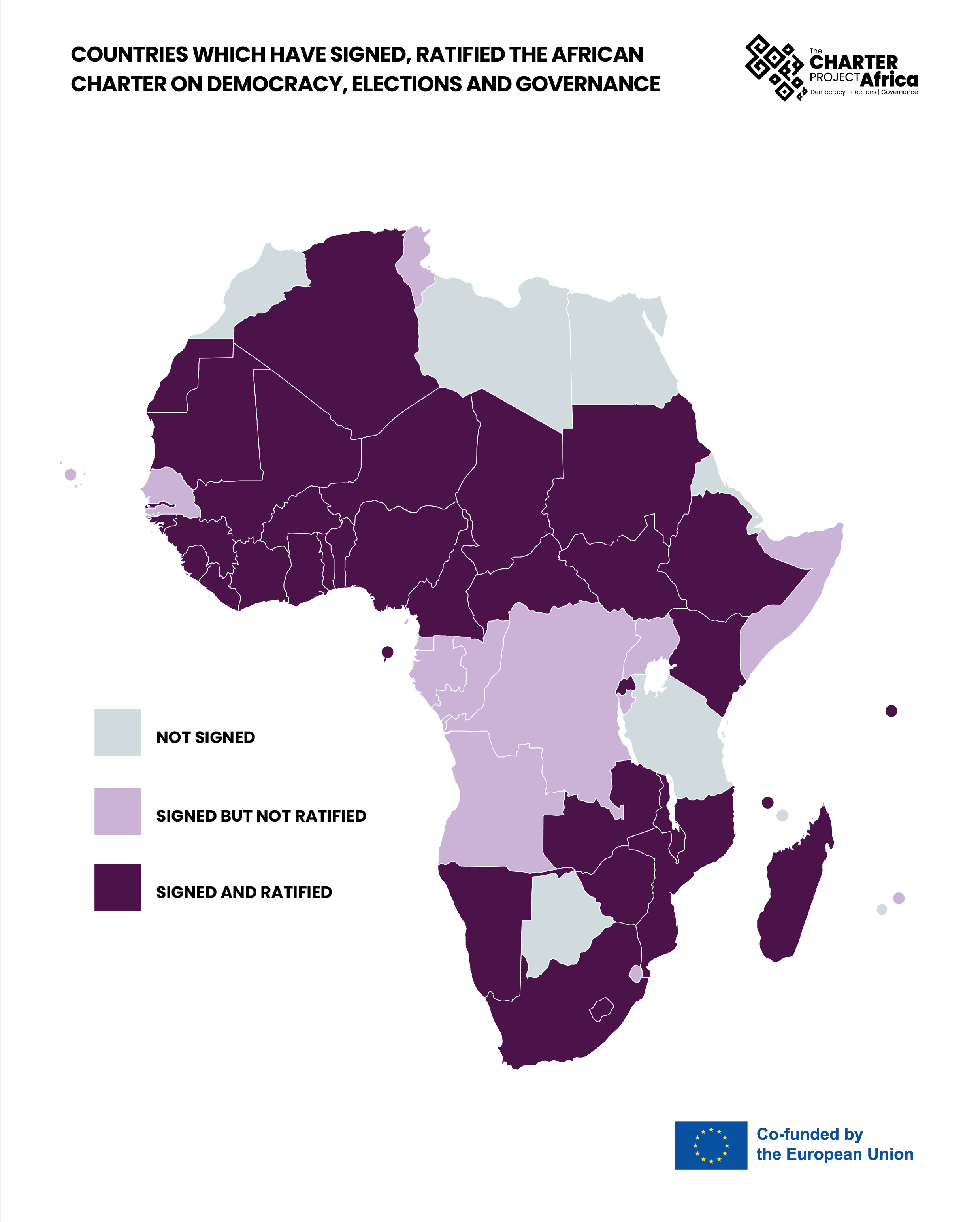
The ACDEG entered into force in 2012, after the first 15 countries had signed and ratified it. Others continued to follow suit in subsequent years. Once the ACDEG has been adopted in a country, the next step is implementation.
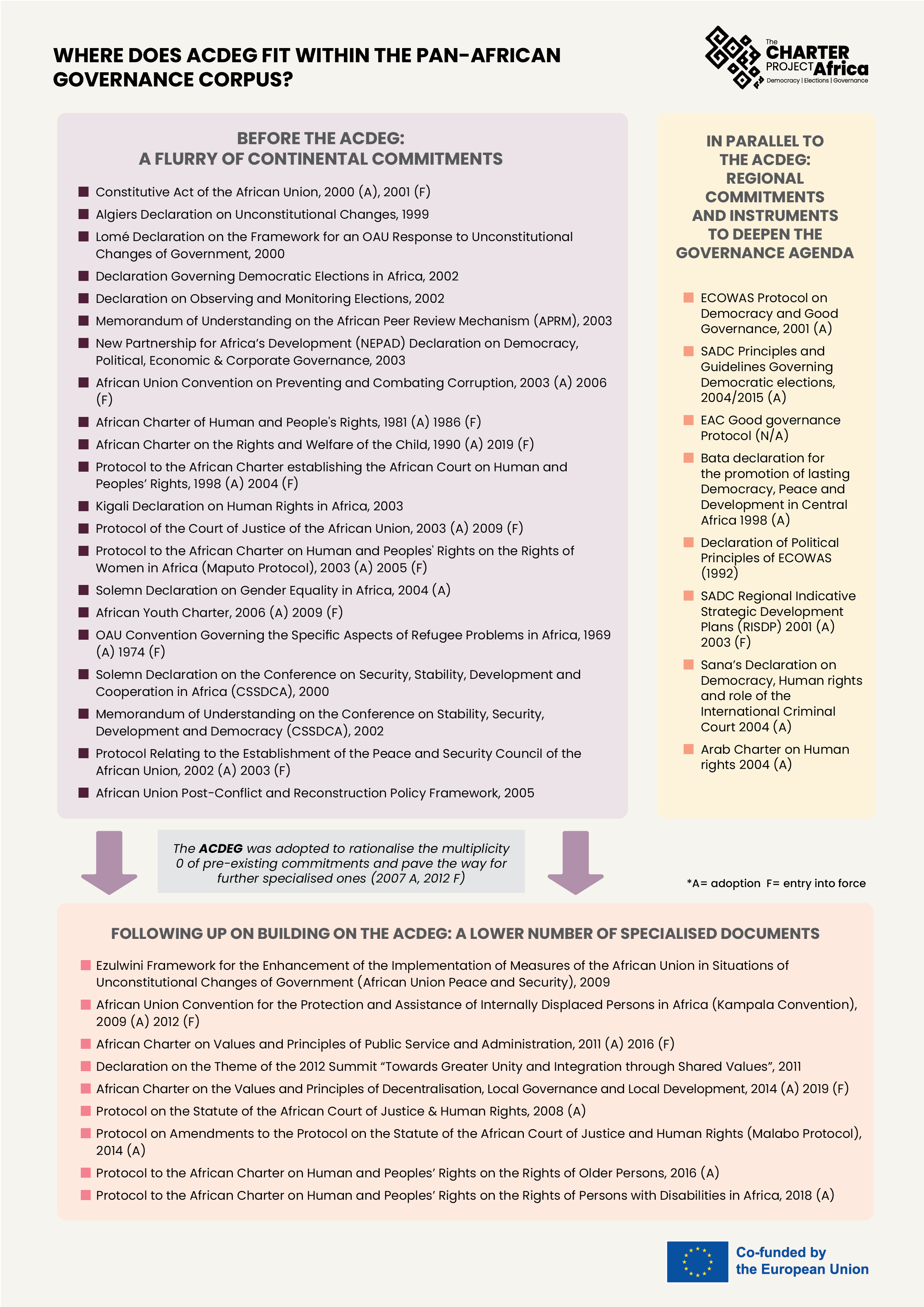
Adoption of the Charter started in the 90s, followed by the creation of the African Union at the turn of the millennium. With it came a flourish of declarations to improve governance; seen on the top of this infographic. The top-left side lists commitments added over 2008-2021, with fewer entries in the 2000s (bottom left). Meanwhile, documents to operationalise the agenda were progressively developed (right).
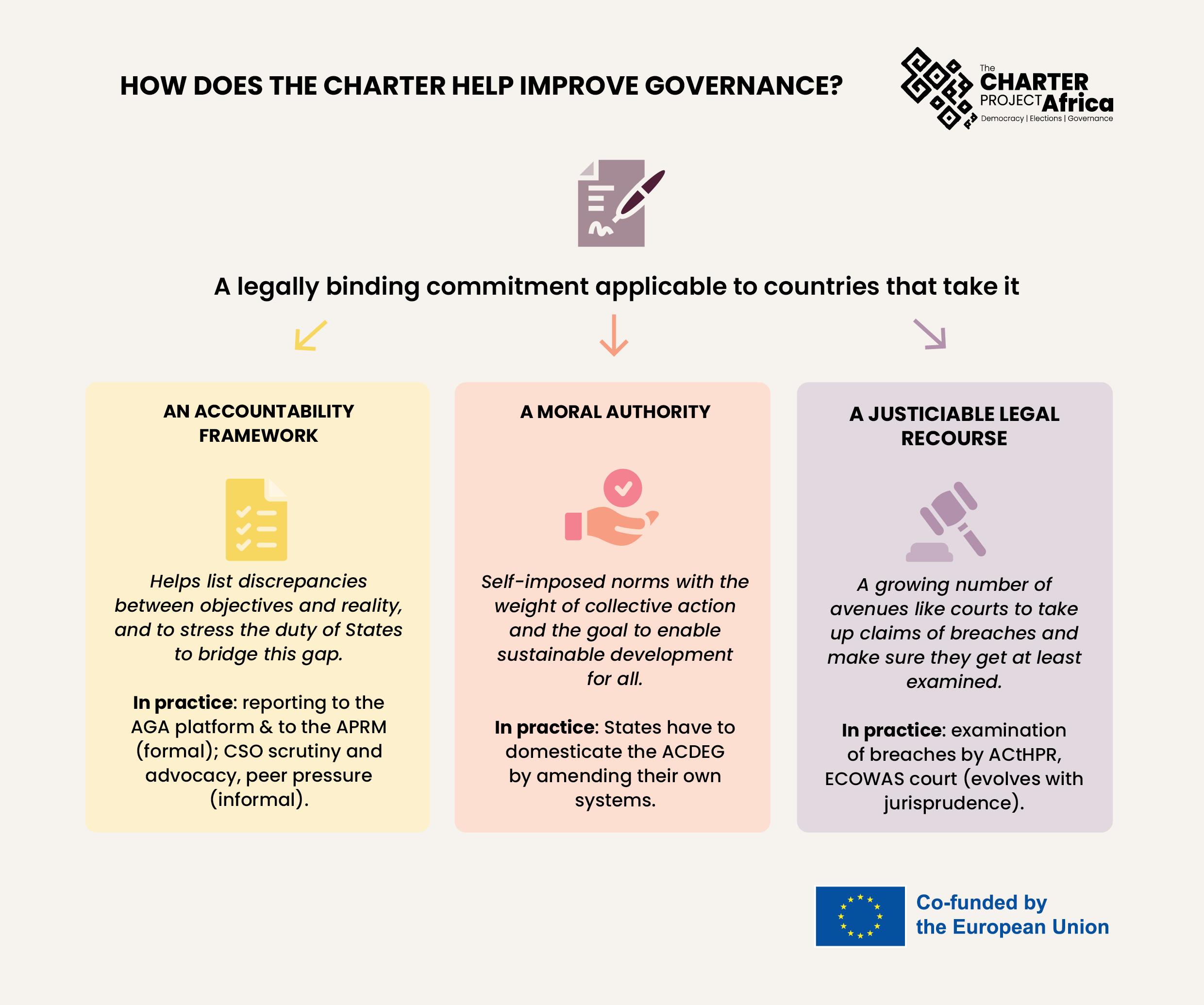
The strength of the Charter as an accountability framework is that non-state actors can use it as a benchmark to assess what countries are doing and engage in advocacy on that basis. In rare cases, it is possible to take countries to court on the basis of the Charter. The main avenue is the African Court on Human and Peoples Rights (ACtHPR), where only states (or NGOs and/or individuals they have authorised) can lodge a claim.
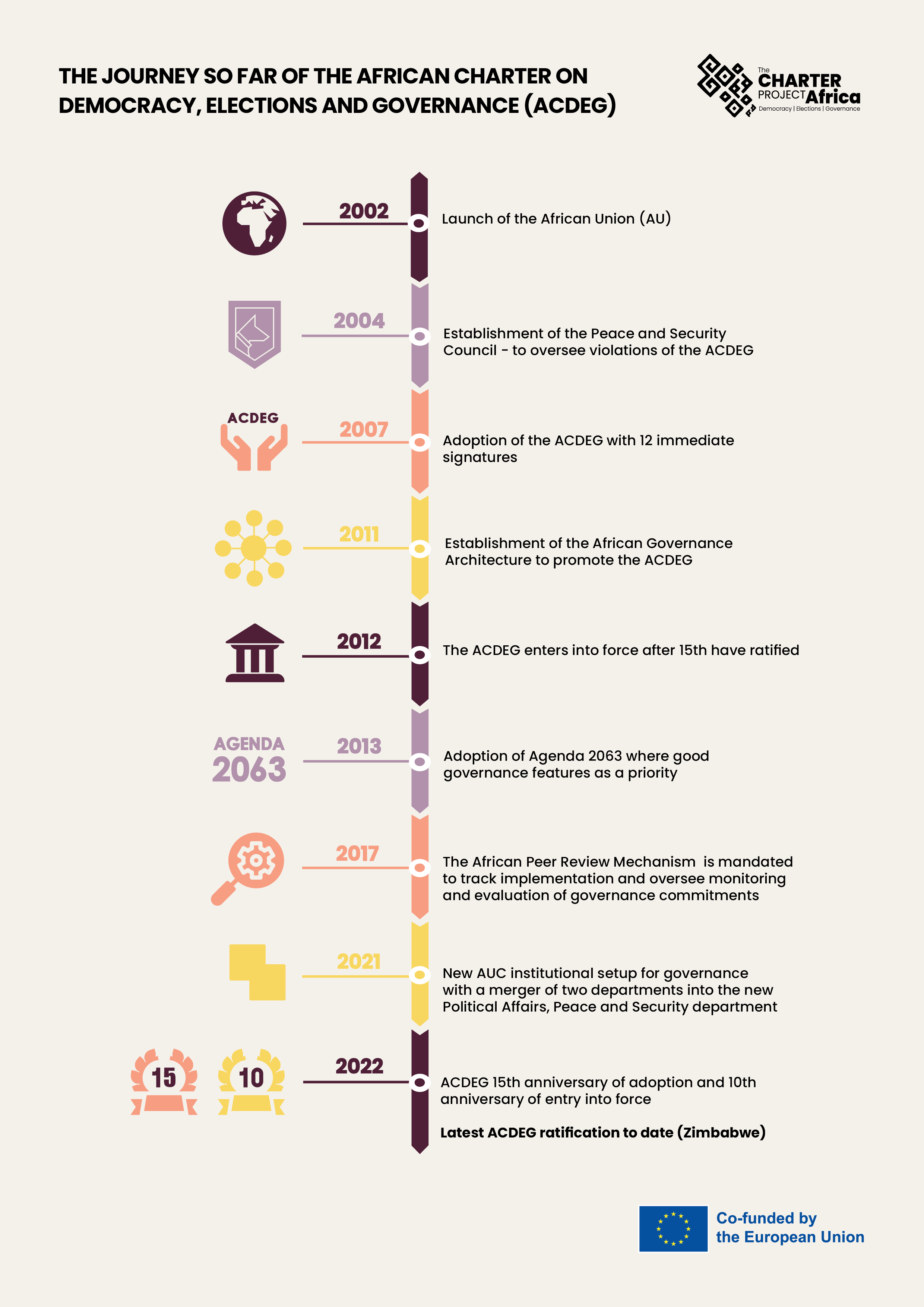
The Charter is a legally binding document which sets the rules that African countries should follow when it comes to governance. It was first adopted by the AU in 2007 to simplify various African commitments and declarations and bundle them together as one package that could be more easily agreed upon.
